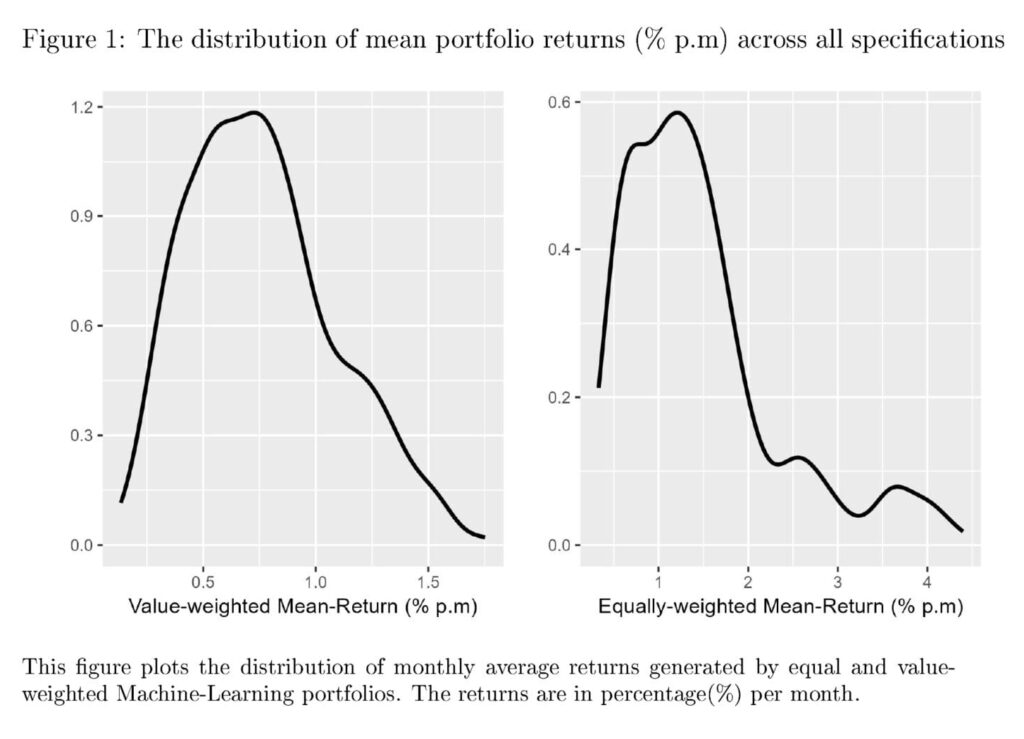U.S. Inventory Market Wrap-Up: Election Anticipation and Investor Anxiousness
U.S. shares ended barely down on Monday after a unstable buying and selling session, with traders bracing for a decisive week because the nation prepares to decide on its subsequent president and the Federal Reserve will get set to launch a key coverage assertion.
Ultimate Push: Trump vs. Harris
Within the ultimate hours of the presidential race, candidates Donald Trump and Kamala Harris pulled out all of the stops in an effort to safe essential votes. Polls present a detailed race, and it could take a number of days to find out the winner.
Trump Trades Lose Steam
Among the so-called “Trump trades” confronted declines after latest polling confirmed Harris, a Democratic vice chairman, main in Iowa. This led to a dip within the U.S. greenback, Treasury yields, and Bitcoin. In the meantime, Trump Media & Know-how Group (DJT.O) ended up with a 12.37% acquire, recovering from early losses of almost 6%.
Harris’s Odds Rise in Betting Markets
Following the Iowa ballot, Harris’s odds in opposition to the previous Republican president elevated on a number of betting websites, which many market individuals view as a predictor of election outcomes.
“We’ll want till not less than Thursday to find out who received, so sadly, this week will possible be fairly unstable,” mentioned Sam Stovall, chief funding strategist at CFRA Analysis in New York.
“Earnings are doing properly, the Fed will possible decrease rates of interest, and the one true uncertainty is the election. Hopefully, it is going to be resolved sooner fairly than later, so traders can get again to enterprise as regular,” Stovall added.
Wall Road Indices Wrestle Amid Uncertainty
On Monday, main U.S. inventory indexes slid into the purple. The Dow Jones Industrial Common (.DJI) fell by 257.59 factors, or 0.61%, closing at 41,794.60. The S&P 500 (.SPX) additionally declined, shedding 16.11 factors, or 0.28%, to settle at 5,712.69. The Nasdaq Composite (.IXIC) joined the downtrend, shedding 59.93 factors, or 0.33%, and ending at 18,179.98.
Bond Yields Proceed to Slide
On the bond market, ten-year U.S. Treasury yields took one other hit, falling 6.4 foundation factors to 4.299%, following an preliminary drop of 10 foundation factors. Traders anticipate a unstable week as they await election outcomes and coverage readability.
Russell 2000 Beneficial properties on Falling Yields
With bond yields declining, the Russell 2000 (.RUT) noticed a modest 0.4% enhance, as decrease borrowing prices have a tendency to profit small-cap shares, that are seen as extra more likely to acquire from decrease charges.
CBOE Volatility Index Rises: Concern Index Holds Regular Close to Highs
The CBOE Volatility Index (.VIX), referred to as Wall Road’s “concern gauge,” climbed to 21.94, staying properly above its long-term common of 19.46. It hovered close to final week’s two-month excessive of 23.42, reflecting heightened market pressure over the pending election and potential financial fallout.
Fed Price Reduce Anticipated with Close to Certainty
Heading into Thursday, traders are virtually sure the Federal Reserve will lower the benchmark rate of interest by 25 foundation factors. In response to CME’s FedWatch software, there’s a 98% probability of a charge lower and solely a 2% probability the Fed will maintain charges regular. This expectation has been priced into the market, closely influencing investor sentiment.
Vitality Sector Leads Beneficial properties Amid Oil Surge
Among the many S&P 500’s 11 main sectors, vitality (.SPNY) led the way in which, gaining 1.87%, buoyed by an increase in oil costs following OPEC+’s resolution to postpone manufacturing hikes.
Nvidia Replaces Intel in Dow
Chipmaker Nvidia (NVDA.O) noticed a modest 0.48% acquire after information that it’ll exchange Intel (INTC.O) within the Dow Jones Industrial Common. In response, Intel’s shares dropped 2.93%, weighing on the Dow.
Marriott Slips on Lowered Revenue Outlook
Resort operator Marriott Worldwide (MAR.O) declined by 1.59% after reducing its 2024 revenue forecast resulting from weak home journey demand within the U.S. and China.
Constellation Vitality Takes a Hit Following FERC Rejection
Constellation Vitality (CEG.O) carried out the worst within the S&P 500, down 12.46%. The Federal Vitality Regulatory Fee denied a deal to develop capability at Amazon’s information middle, which is immediately linked to Talen Vitality’s nuclear plant in Pennsylvania, pressuring the utilities sector, which fell 1.21%.
Rising Shares Outnumber Decliners on NYSE and Nasdaq
On Monday, advancers outpaced decliners on the New York Inventory Trade by a ratio of 1.37 to 1, whereas on the Nasdaq, the ratio was a narrower 1.01 to 1 in favor of gaining shares, suggesting a light total bullish sentiment regardless of normal warning.
Highs and Lows: Combined Market Momentum
The S&P 500 registered 10 new 52-week highs and 4 new lows, reflecting optimistic expectations in choose sectors. In the meantime, the Nasdaq Composite noticed 66 new highs but in addition 128 new lows, highlighting heightened volatility amongst expertise and innovation shares.
Buying and selling Quantity: Barely Beneath Common, However Important
U.S. buying and selling volumes reached 11.31 billion shares, slightly below the 20-day common of 11.71 billion. This may increasingly point out a cautious stance amongst market individuals forward of main occasions just like the Fed assembly and presidential election.
Air France KLM Faces Downgrade and Inventory Stress
Shares of Air France KLM (AIRF.PA) fell after Morgan Stanley downgraded the airline from “equal weight” to “underweight.” On Tuesday, the inventory dropped roughly 2% initially of the buying and selling session.
Difficult Money Circulation Outlook for Air France KLM
Morgan Stanley famous that whereas Air France KLM’s inventory is not overly costly by historic requirements, it trades at a notable premium to its friends amongst nationwide carriers. This premium, mixed with difficult free money circulate prospects, suggests a cautious outlook for the airline.
Third-Quarter Earnings in Europe: Surpassing Expectations however China Considerations Linger
Regardless of financial challenges, many European firms are surpassing low market expectations for third-quarter earnings, with traders rewarding high performers. Nonetheless, issues over weak demand in China proceed to mood enthusiasm, prompting warning.
Lowered Forecasts Ease the Bar for Earnings Development
Knowledge from LSEG I/B/E/S reveals that analysts revised down revenue development expectations by 380 foundation factors within the two months earlier than the earnings season. Usually, such changes are round 100 foundation factors, however the substantial drop in projections has made it simpler for firms to exceed expectations.
STOXX 600: Extra Corporations Beating Expectations
Thus far, round 50% of firms within the STOXX 600 (.STOXX) index have reported their earnings, with roughly 56% exceeding forecasts. Citi fairness strategists word that this determine aligns with the quarterly common, indicating that European companies are holding regular regardless of market turbulence.
U.S. Elections Add a Layer of Uncertainty for Europe
The upcoming U.S. elections add one other layer of uncertainty, with analysts anticipating that the ensuing volatility may proceed to affect European shares as traders wait to see how the election final result may affect the worldwide financial system.
Market Dynamics Shift: Reward for Outperformance and Penalties for Misses
This quarter, firms which have exceeded expectations are being notably rewarded by traders. Then again, these lacking forecasts are feeling the strain because the market takes a more durable stance on underperformance.
European Banks Boosted by Excessive Curiosity Charges
European banks have loved one other robust quarter as persistently excessive rates of interest proceed to help revenue margins. Even because the European Central Financial institution alerts potential charge cuts, investor sentiment stays optimistic.
Greater Structural Charges: A Win for Banks
“Rates of interest will structurally stay greater than in earlier cycles,” remarked Thomas McGarrity, head of fairness at RBC Wealth Administration. He believes this may profit banks considerably, permitting them to maintain robust margins. “We’re in a good place and will not be backing down,” McGarrity added.
Monetary Sector’s Revenue Development Among the many Highest
Knowledge from LSEG I/B/E/S reveals that the monetary sector noticed 20.6% revenue development within the third quarter, rating it third amongst main sectors after utilities and primary supplies. Thus far, 80% of monetary firms have reported earnings that beat analyst expectations.
Financial Stagnation Hits Small and Mid-Caps Hardest
In the meantime, Europe’s financial system stays in a state of stagnation. The economic sector, notably reliant on vitality, faces challenges from rising prices and weak world demand. For small- and mid-cap firms centered on the home market, these points create vital headwinds and unstable development prospects.
European Shares Traditionally Undervalued: Enticing Ratios for Traders
Presently, European shares stay traditionally undervalued. The typical 12-month ahead P/E ratio stands at 13.6x, decrease than the long-term common of 14.3x. Mid-cap shares seem much more enticing, buying and selling at a ahead P/E of 12.7x in comparison with the long-term common of 15x. This undervaluation makes European belongings interesting to traders in search of development potential in steady markets.












